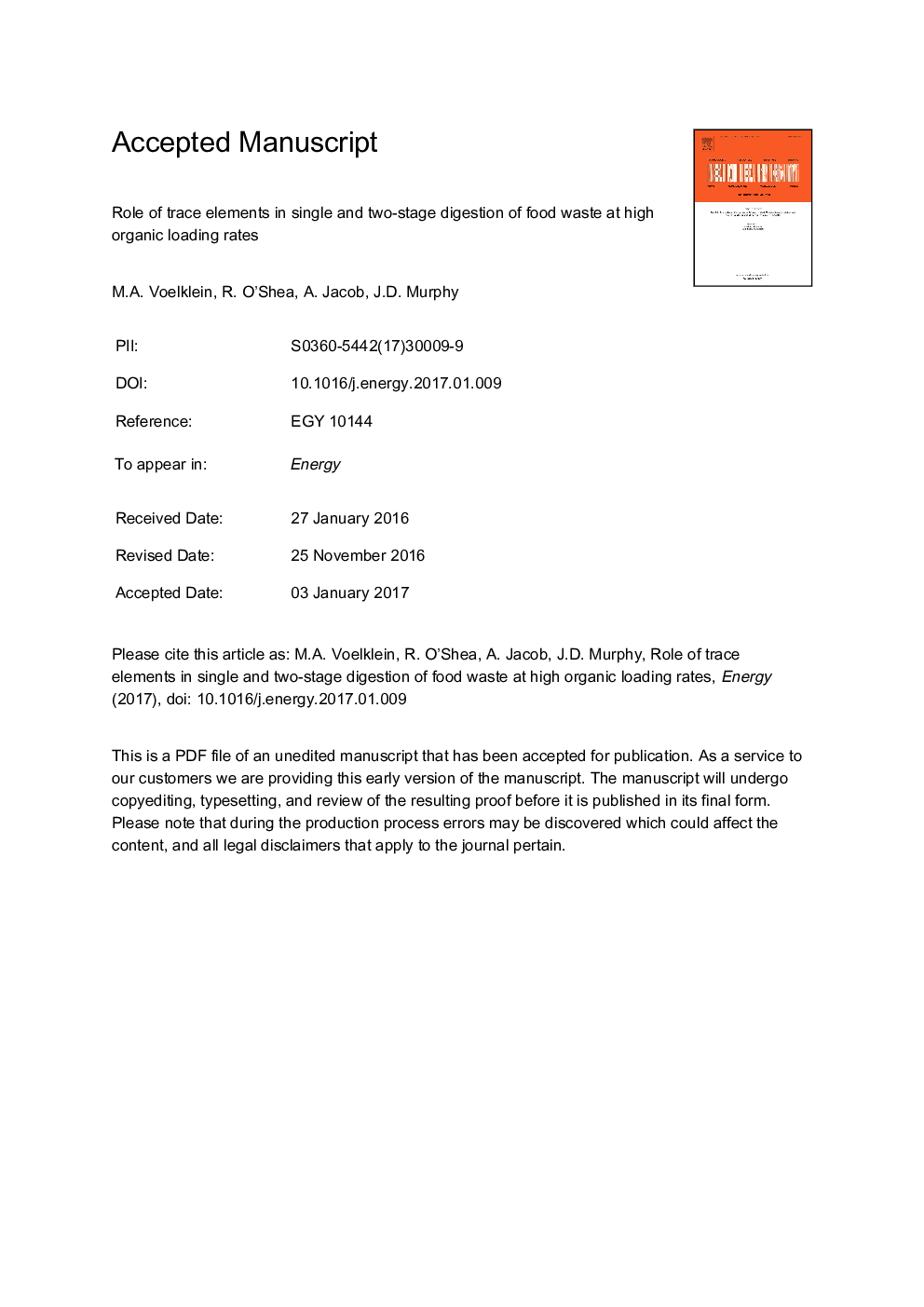| Article ID | Journal | Published Year | Pages | File Type |
|---|---|---|---|---|
| 5476317 | Energy | 2017 | 29 Pages |
Abstract
This study investigated trace element deficiency and supplementation in mono-digestion of food waste. A single-stage system was contrasted to a two-stage system (hydrolysis followed by methanogenisis). Initial hydrolysis is beneficial as it releases hydrogen sulphide (H2S), while the prevailing pH prevents an associated H2S induced precipitation of trace elements (TE). Stable digestion took place without TE supplementation until an organic loading rate (OLR) of 2.0 g VS Lâ1 dâ1; this was followed by severe instability at an OLR of 2.5 g VS Lâ1 dâ1 in both systems. A major accumulation of volatile fatty acids (VFA) inhibited methanogenic activity. A gradual deterioration of pH, VFA/TIC (ratio of VFA to alkalinity) and specific methane yields provoked reactor failure. The benefit of enhanced TE availability in the two-stage system was not apparent due to the complete absence of essential TE in the feed stock. Supplementation of deficient TE (Co, Fe, Mo, Ni and Se) induced recovery, reflected by an immediate improvement of VFA/TIC and VFA concentrations in both systems. Specific methane yields were restored and maintained at initial levels. At a 16 day retention time, elevated loading rates as high as 5 g VS Lâ1 dâ1 allowed stable digestion with TE supplementation.
Related Topics
Physical Sciences and Engineering
Energy
Energy (General)
Authors
M.A. Voelklein, R. O' Shea, A. Jacob, J.D. Murphy,
